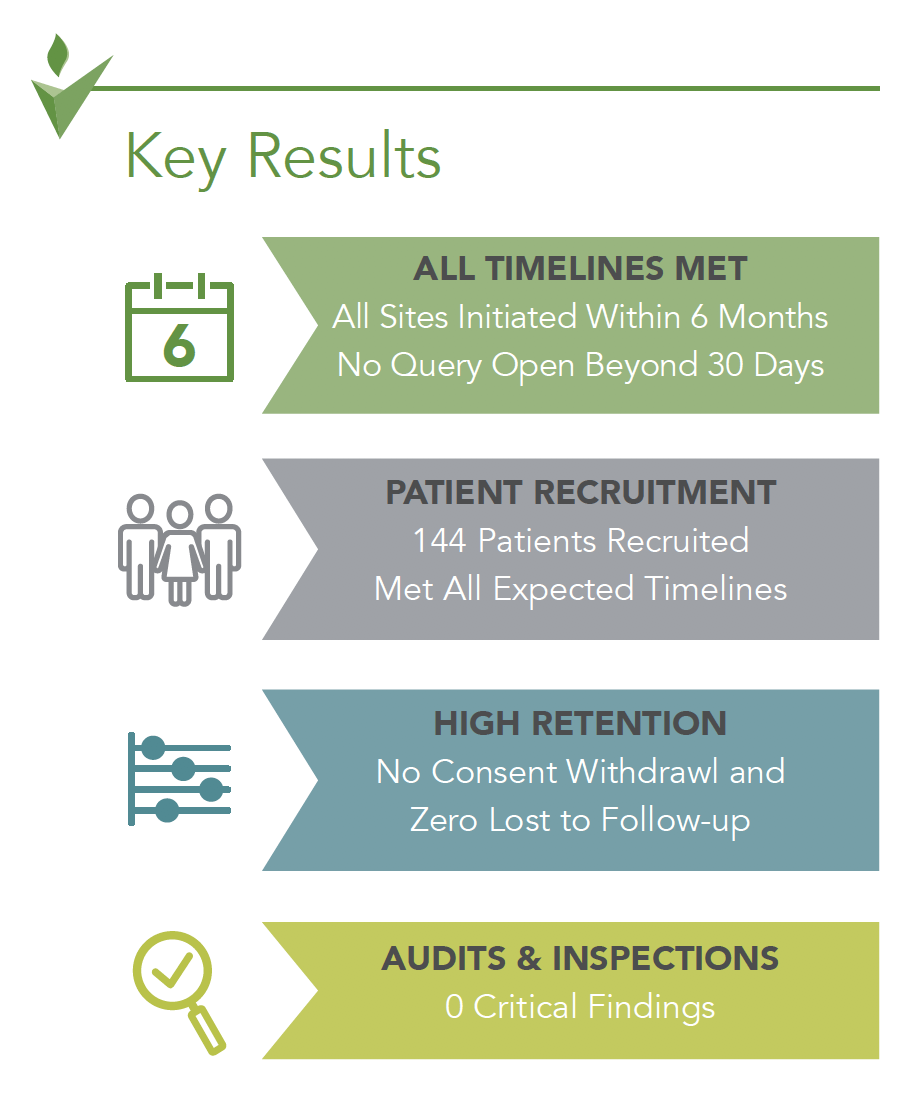Download The Complete Case Study
George Clinical delivers India arm of this landmark trial with on-time recruitment and 100% retention.
SITUATION
“Nearly half of all people with type 2 diabetes will develop chronic kidney disease (CKD), causing a high risk of kidney failure and cardiovascular disease and impacting their quality and length of life, even with the current best available care. This huge unmet need is why it was so important for us to initiate the landmark CREDENCE renal outcomes trial,” says Vlado Perkovic, CREDENCE Steering Committee co-chair, Professor of Medicine, University of New South Wales. CREDENCE was the first dedicated renal outcomes trial in patients with CKD and type 2 diabetes on the background of standard of care, and evaluated the efficacy and safety of canagliflozin versus placebo in preventing clinically important renal and cardiovascular outcomes in patients. This study heralds the first new drug therapy in more than 15 years for slowing down the progression of CKD in patients with type 2 diabetes, which could be transformational for these patients worldwide.
The trial enrolled approximately 4,400 patients in 34 countries including 144 patients in India, where George Clinical was engaged to execute trial operations. George Clinical was uniquely positioned for this task due to the deep experience of our India operational teams as well as the world-renowned scientific leaders in nephrology associated with George Clinical. In addition, George Clinical’s partner in research, The George Institute, has a more than a fifteen-year presence in India where, under the leadership of Vivekanand Jha, Executive Director of The George Institute for Global Health, India, and President of the International Society of Nephrology, they have been conducting outstanding nephrology research.

CHALLENGES
India was brought into the trial later than other countries to further enrich the recruitment pool. Given the fact that more than 62 million people in India have diabetes and that 17% of the population has some form of CKD, India was a natural destination to broaden the study’s recruitment. However, due to the late addition of the country, it was critical for the success of the study to have Indian sites on board and to recruit in a short time frame. Quick assimilation into partner CRO’s systems and to the existing global network of a highly complex trial with many partners was also required.
Clear and consistent communication pathways needed to be established among all stakeholders. Consideration of possible differences in renal clinical practices in India and knowledge of cultural behaviors was also essential to assure clear communication and consistent results.



